 |
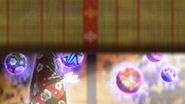 |
 |
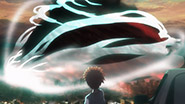 |
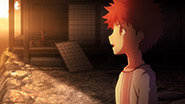 |
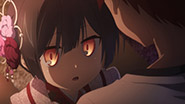 |
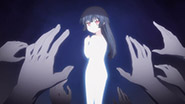 |
 |
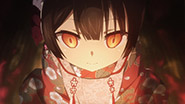 |
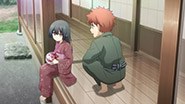 |
 |
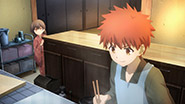 |
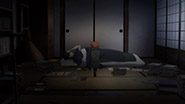 |
 |
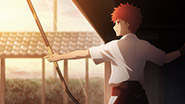 |
 |
 |
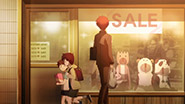 |
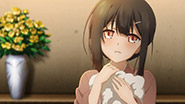 |
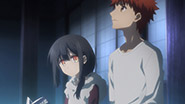 |
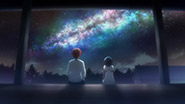 |
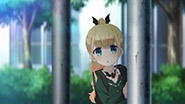 |
 |
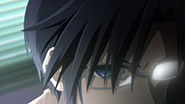 |
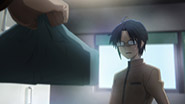 |
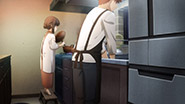 |
 |
 |
 |
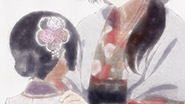 |
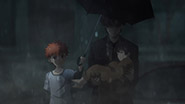 |
 |
 |
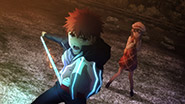 |
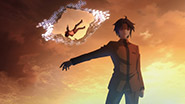 |
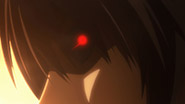 |
 |
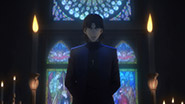 |
 |
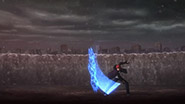 |
 |
 |
 |
 |
 |
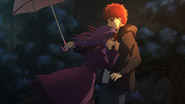 |
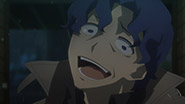 |
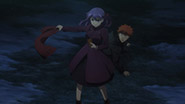 |
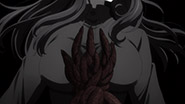 |
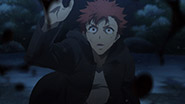 |
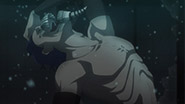 |
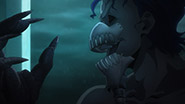 |
 |
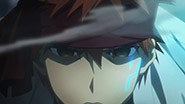 |
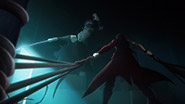 |
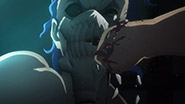 |
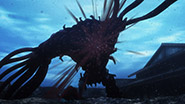 |
 |
 |
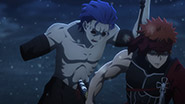 |
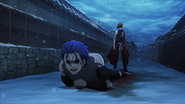 |
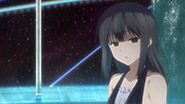 |
 |
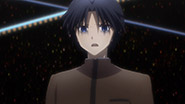 |
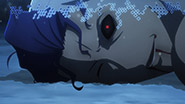 |
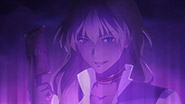 |
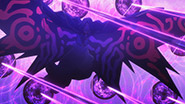 |
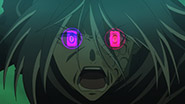 |
 |
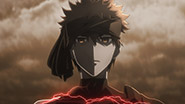 |
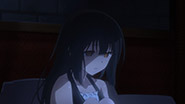 |
 |
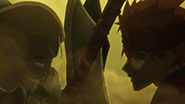 |
 |
 |
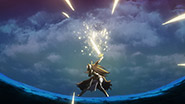 |
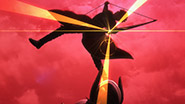 |
 |
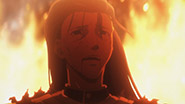 |
 |
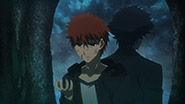 |
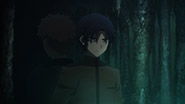 |
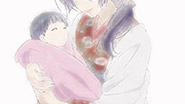 |
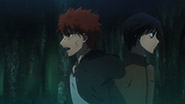 |
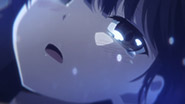 |
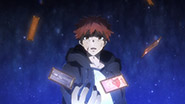 |
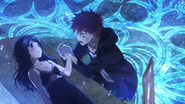 |
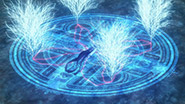 |
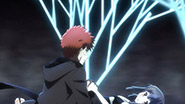 |
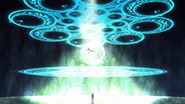 |
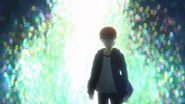 |
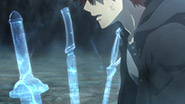 |
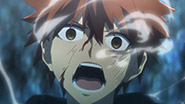 |
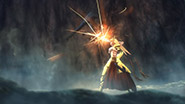 |
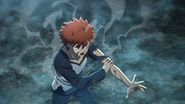 |
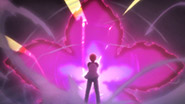 |
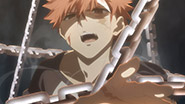 |
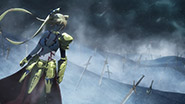 |
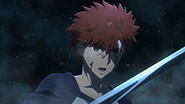 |
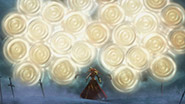 |
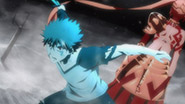 |
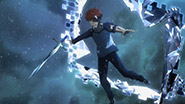 |
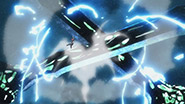 |
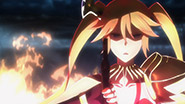 |
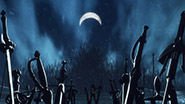 |
 |
 |
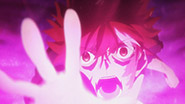 |
 |
 |
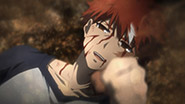 |
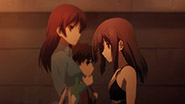 |
 |
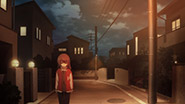 |
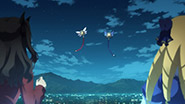 |
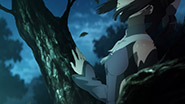 |
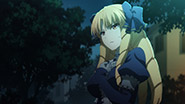 |
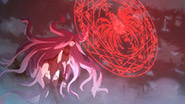 |
 |
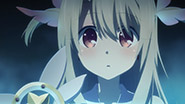 |
「劇場版Fate/kaleid liner プリズマイリヤ 雪下の誓い」 (Gekijou-ban Fate/kaleid liner Purizuma Iriya Sekka no Chikai)
“Fate/kaleid liner Prisma Illya: Oath Under Snow”
Fate/kaleid liner Prisma Illya: Oath Under the Snow, picks up straight from the last episode of 3rei!! and tells the story of how Miyu and her Shirou got to where they were when we first met them. It’s everything that takes place from the pitch black vortex to the moment Miyu meets Illya, and it explains a great deal of what happened in the background—mostly details we could already surmise from what we’d learned in the main Prisma Illya timeline, but watching it play out is not without its worth. Mostly for reasons of character and theme, which, as compared to exposition, is much more worth our time.
It helps that we already know these characters, it’s the details of these iterations that hold the most interest. Much is the same: the Fourth Grail War happened in this world, in some fashion or other, Shirou still ended up an orphan, Sakura still ended up a Matou, Kiritsugu still died relatively young as a washed up old hero, and Shinji still sucks. That made the differences even more stark, starting with those who were not there: Issei was replaced with Julian, Shinji wasn’t a presence in Shirou’s life until the bloodletting started, Kirei isn’t a piece of shit, the vortex takes the place of the Great Fire as the tragedy that scarred the city, and of course, Miyu. This mix and match of old and new lessened our exposition needs—they only started to go overboard during the battle montage, though anyone not familiar with the Unlimited Blade Works arc would have needed that information—and meant they could spend more time shows how these characters are different, but also not. Sakura still loves sempai, and Shirou’s cooking still brings all the girls to the yard. These will never change.
“Don’t mistake your goal, Shirou. It’s saving the greater number of lives, not the few lives in front of your eyes.”
The primary theme of this story, and this Shirou, is a debate about utilitarianism. Is it right to do what’s best for the most people, even if it unduly harms a minority? Or is it better to save those in front of you and continue seeking a better solution to a coming calamity? The movie doesn’t fall conclusively on one side or the other, because Prisma Illya as a whole is still interested in digging into this. It does come down against utilitarianism though, if only because Shirou’s worldview needs to hold out the baton for Illya to pick up, who will hopefully be able to find a third option (trope!) since she’s so much more idealistic than Miyu’s crapsack world would allow. You could say this movie is anti-utilitarian, and you’d be right, but in the context of the larger Prisma Illya story it’s less clear, at least until the battle against the Ainsworths is concluded. In the meantime, this Shirou is not unlike Heaven’s Feel Shirou, without all the dirt. He still has some of it, but I mostly mean that he chose the one over the many, and that he bowed to the friction between reality and his ideals, and chose a smaller justice rather than the ideals he inherited from Kiritsugu.
Before I talk more about those ideals, a quick sidebar: I’ve heard some people complain that Prisma Illya has gone all Heaven’s Feel since 3rei, and fair enough. They’re right, up to a point. I think there’s a big difference, though, and it has to do with the multiple world. The Fate series has always been rife with multiple timelines, but each one is usually individually contained; that’s even true here, as the Prisma Illya timeline is separate from the others. But it consists of two worlds, and that affords it something the other Fate timelines couldn’t access: varying tones. When people complain that Prisma Illya has gone all Heaven’s Feel, what they’re usually lamenting is the changed tone from the original / Zwei, but that tone hasn’t gone away. It’s merely confined to Illya’s world. It’s Miyu’s world that has the Heaven’s Feel-like tone, because it’s a shitty, bad world where bad things happen to good people. In Miyu’s world, Kiritsugu is dead and Shirou is powerful but unhappy. In Illya’s world, Kiritsugu is alive (it’s the only one he gets to be happy in!) and Shirou is a happy, clueless teenager. There are good reasons for that changed tone!
The key, I think, is that lighter tone isn’t actually confined in Illya’s world. Not toally. It’s present in Illya too, as well as in her other friends and allies from that world. (Note also that their world gets darker and more harrowing the more people from Miyu’s world meddle with it.) The key to Prisma Illya turning out all right in the end will be if Illya’s worldview can triumph where Miyu’s Shirou could not—if she can find that third option. That tone embodies her worldview, so it will be Illya’s worldview taking over Miyu’s world that will lead to a happy ending—and the Ainsworth’s downfall. But that’s a story for a later time (hopefully).
(Actually, one more thing. It reminds me of a UQ Holder thing, but since it comes from the manga, I’ll stick it in spoiler tags:
“Chasing after what’s right could never be a mistake. I will never let it be a mistake!”
Anyway, back to ideals. What I especially appreciate is how good of a foil Julian is for Shirou. To explain this, let me take you behind the scenes of the character creation process. One great way to make an antagonist is to make them a dark reflection of the protagonist, which means they should have the same goal but be diametrically opposed in how they go about it. And by goal, don’t get tripped up by getting too specific. The Joker is a dark reflection of Batman, but if you said that Batman seeks justice while the Joker wants chaos, you wouldn’t see the reflection. But that’s not what they’re really after. It’s as Heath Ledger’s Joker said in that last (good) movie: “You didn’t think I’d risk losing the battle for Gotham’s soul in a fist-fight with you?” They’re not fighting for justice or chaos. They’re fighting for Gotham’s soul. Each of them wants to dictate what Gotham is and will be, and what its future will be. They just have different visions for what that should be.
By the same token, Julian and Shirou’s ultimate goals are not the same—only one of them is trying to save humanity now. What they’re fighting over is the right to set the terms of Miyu’s future, whether that be sacrifice or life. What takes it up another level is not only that they use different tools and have different visions for Miyu’s future, it’s that their tools and personalities rhyme—one is an empty shell who fakes ideals and swords, while the other stuffs the deceased into empty shells—and that Shirou so easily could have turned out like Julian. Julian’s ideals are the same as Kiritsugu’s, after all, complete with them both thinking of Miyu as a tool to be used for the greater good. Julian is indeed a dark reflection of Shirou, and he’s even more impressive because Hiroyama-sensei was able to create a poetic original villain opposite an established character, and he absolutely slayed it.
Bonus points: the initial friendship between Shirou and Julian justifies why Julian let him live, since he was visibly perturbed when he found out that Shirou was the “thief”. Julian could dismiss him from his life, but he couldn’t bring himself to kill him. Beautiful.
“I’ll go ahead and wait for you in hell.”
There were a lot of other elements that really worked for me. Take the dolls. Did anyone else wonder if Shirou was only fighting dolls because Hiroyama-sensei wanted to avoid him killing a bunch of people? I did, but I realized that doesn’t make sense. For one, Sakura mentioned that Shinji had been dead for a long time, which implies that his body was already dead and his soul was just shoved into the doll. But even if his body was still alive somewhere, like Illya’s was when she was trapped in that stuffed animal, the stakes were still the same: kill the doll with the person’s soul in it, kill the person (or, from how much Shinji was malfunctioning, the shadow of the person they’d become). What it did was show how Julian had manipulated the Grail War so that everyone was effectively under his control—either everyone was already dead and marching to his orders, or at best the ensolued dolls were fighting for their life rather than an ulterior motive like in the classic Grail War. (Which is another reason why betraying and killing Sakura was so wise, since she appears to have been the only actual human.) That meant that, no matter who won, Julian would get his way. Only he got unlucky because another characteristic about Shirou that never changes is that he always has the potential to become EMIYA, so tough shit Julian. But I like that this element showed how far ahead he had planned.
This movie also made me appreciate again how good of a prequel Fate/Zero was. It really was one of those rare prequels where, despite us already knowing how it was going to end, it was worth watching to the end. It helped that Kiritsugu and the other characters (aside from Saber, Gilgamesh, and Kirei) weren’t much there in the original Fate—and seeing how Kotomine broke bad was worth it as well. It also helped that, like here, it was operating in a framework that we were largely familiar with (the Grail War), so we got to focus more on the differences. Still though, it was really good too.
“There are times when just one thing can outweigh everything else.”
One last thing. The emotional heart of this story was certainly Miyu, even if the active protagonist was once again good ol’ Shirou. What I’m really glad about is that Hiroyama-sensei managed to throw one curveball that I didn’t see coming, and it was a doozy. I was expecting the Sakatsuki family to be another minor evil, as anyone who is too heavily mixed up with the Grail inevitably is. So imagine my surprise when Shirou reveals the wish that the Sakatsukis—every one of them for four hundred years, without a single exception—had asked for when their children were all-powerful wish granting machines: They simply wished for their children to grow up healthy. I don’t mind telling you that my tears welled up on that scene. It’s cheesy, but sometimes it’s nice to see faith in humanity rewarded. It’s nice to see the world act more like Illya’s, even amid the blasted hellscape that is Miyu’s world. It’s nice to see that parents still love their children first, foremost, and only.
After that, it was the old standard: seeing Shirou become the hero he was already turning into, go full Unlimited Blade Works, and stall Angelica just long enough to win—because he was never trying to beat her, he was just trying to delay until Miyu got away. The animation was nice throughout, not ufotable glorious but more than good enough, but I just enjoyed watching everyone’s favorite faker go toe-to-toe with the King of Heroes[‘s card holder] once again, because we’ve all got some Imposter Syndrome in us, and Shirou always shows us that a faker can get it done too. Love that guy, which is why it’s nice that sometimes he just gets to cook and be happy.
Sekka no Chikai is a good movie. As a fan of the series, I really enjoyed it, and it had none of the pacing problems some of the later anime seasons have had (that they picked a good format for the material at hand, rather than trying to force a square peg in a round slot, has a lot to do with that). For fans of the Prisma Illya anime, it’s pretty much mandatory. Check it out, and join me in hoping for another season to be greenlit!
Random thoughts:
- Are those Grail-kun pajamas? Hah!
My SECOND novel, Freelance Heroics, is available now! (Now in print!) (Also available: Firesign #1 Wage Slave Rebellion.) Sign up for my email list for updates. At stephenwgee.com, the latest post: The Last Jedi SUPER SPOILERY Review.
ED Sequence
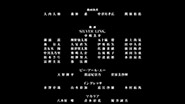 |
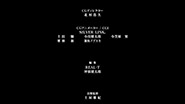 |
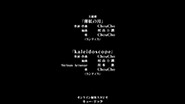 |
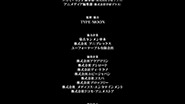 |
ED: 「Kaleidoscope」 by ChouCho

https://randomc.net/image/Fate%20kaleid%20liner%20Prisma%20Illya/Fate%20kaleid%20liner%20Prisma%20Illya%20Sekka%20no%20Chikai%20-%20106.jpg
They greatly improved the visual on the bluray DVD. I was genuinely surprised when rewatching it.
That little bit of Starlog in the ending song is a nice touch.
i know i should, but i never was much into this series of Illya, but something like this (movie?/ova?) seems like something i could enjoy. so, is knowledge of the series a plus or required?
I suppose you could argue that because it’s prequel you could watch it on its own, but I think it’s fair to say you won’t get as much out of it as someone who has watched the rest of Prisma Illya.
What Angelus said. You could do it, but I’d suggest starting with the first season. This’ll have a lot more punch if you’ve watched the rest first, and the first season is a lot easier to get into as well. Much easier to bail after an episode or two if you’re not liking it.
Nice review. I really think this is a very nice movie and adaptation of the manga.
I really really really hope that Illya will find the third option she’s seeking. I need a positive ending for this series. Every other Fate series (that isn’t an outright parody) ends up bitersweet at best, and in some cases outright depressing. Illya deserves her happy ending here.
https://randomc.net/image/Fate%20kaleid%20liner%20Prisma%20Illya/Fate%20kaleid%20liner%20Prisma%20Illya%20Sekka%20no%20Chikai%20-%20Large%20047.jpg
No Shinji, you can’t do extreme head-tilts here. 😛
I really really really hope that Illya will find the third option she’s seeking. I need a positive ending for this series. Every other Fate series (that isn’t an outright parody) ends up bitersweet at best, and in some cases outright depressing. Illya deserves her happy ending here.
Btw, please fix the spam blocker, it keeps blocking my posts.
I wonder who used the Berserker class card. Meh, a mystery forever I guess.
https://randomc.net/image/Fate%20kaleid%20liner%20Prisma%20Illya/Fate%20kaleid%20liner%20Prisma%20Illya%20Sekka%20no%20Chikai%20-%20Large%20018.jpg
I am surprised that there were other humans, in Miyu’s world. Anyway, is “gas leak” the only thing the Mage Association can ever come up with? Wow, they can’t come up with anything better.
https://randomc.net/image/Fate%20kaleid%20liner%20Prisma%20Illya/Fate%20kaleid%20liner%20Prisma%20Illya%20Sekka%20no%20Chikai%20-%20Large%20025.jpg
One of the most priceless faces I have seen. Did wonder what happened to Issei, maybe he was never born in this world. Very curious if the Ainsworth family also exist in the world of Fate/Stay Night or fate/apocrypha.
I also wondered who had Berserker, though I guess it’s not very important. One of the others could have defeated Berserker before Shirou got to ’em, plus another 2-minute fight wouldn’t have improved much. Still, I am curious.
Berserker (Heracles) was still held by the goth-loli Beatrice Flowerchild (flashback of Heracles-Beatrice trying to run away from EMIYA-Shirou was also in the 3rei! manga). Background material states Shirou just sniped her with his hax archer skills, but you couldn’t show a teen sniping an underaged girl on the big screen, otherwise Oath Under Snow would have received an R-rating or more.
Ahh, good to know! Thanks for the info
While I can see your point about two different worlds, that doesn’t really change the fact that it’s been years (going by manga release dates) since we got to experience the lightheartedness of Illya’s world. Sure, it still exists, but we’re not going there again anytime soon, if ever.
To me, the key ingredient of good magical girls show are regularly placed moments of respite, where we can forget about any overarching plots and just enjoy the cute girls thing. Unfortunately, Hiroyama has backed himself in a corner by placing our characters in a literal wasteland with impending apocalypse looming over their heads all the time.
You have to remember. Even though kaleid liner is a more light-hearted Mahou Shoujo spin-off of Fate, it’s still a spin-off of Fate.
https://randomc.net/image/Fate%20kaleid%20liner%20Prisma%20Illya/Fate%20kaleid%20liner%20Prisma%20Illya%20Sekka%20no%20Chikai%20-%20Large%20042.jpg
Being Sakura is suffering.
I finally got round to watching this and my god… This nicely filled in most of the questions that we had for Miyu’s origin.
And I believe that the correct order to watch Prisma Illya is to watch this first than on to ep3 of season 1?
No. In 3rei’s last scene, Shirou is about to narrate his and Miyu’s story to Illya and her companions. The entire movie is just a flashback. 😀
I hear you’ve got quite a long time to wait for a season 5. The show is popular so that shouldn’t be an issue, the main issue is the lack of material.